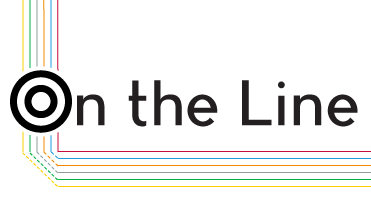WASHINGTON–This week Metro saw its share of highs and lows. Although the transit agency announced the debut date for its new rail cars, it also faced criticism about worker and passenger safety following a slew of incidents.
Debut of new train cars set for April 14
Metro’s aging fleet is finally getting a much-needed upgrade. The first of the system’s 7000-series trains will debut Tuesday, April 14, on the Blue Line, Metro announced Thursday.
The highly anticipated new cars have enhanced safety features and are more technologically advanced than Metro’s current 1000- and 4000-series cars, the former of which have been in service since 1976. The 7000-series rail cars are constructed to meet the latest fire safety standards, uphold improved crashworthiness standards and have recorders and digital video surveillance systems.
Metro purchased 528 of the new cars, which will increase the fleet by 128 and replace both of the old sets of rail cars. The second 7000-series train is undergoing safety testing and will hopefully be on the tracks soon.
New details for possible cause of L’Enfant Plaza smoke incident
Water leaking into Metro electrical equipment caused the heavy smoke during January’s L’Enfant Plaza incident, according to emails and a report from the Office of the City Administrator and D.C.’s Homeland Security and Emergency Management Agency obtained by NBC4’s I-Team through two Freedom of Information Act requests.
The emails also revealed that 15 Metro employees received medical attention following the incident, which resulted in a passenger’s death and sent more than 80 people to the hospital. The employees were not hospitalized until hours after the smoke, instead focusing on the passengers before seeking treatment for themselves.
The National Transportation Safety Board is still investigating and has yet to respond to this suggested cause. The NTSB has scheduled a June hearing to discuss the incident and response.
Crackdown on fare evaders
Turnstile jumpers and tailgaters, beware. Transit police are launching an enforcement program targeting people who don’t pay their train and bus fares.
Special patrols by Metro transit police will begin April 27 at stations and on bus routes where fare evasion is the most prevalent.
This program comes after 3,467 reports of fare evasion in 2014, according to Metro crime statistics. The crackdown is also based on safety concerns for Metro employees, some of whom have suffered injuries in conflicts with fare evaders.
Workers express concerns about safety
Metro workers are not pleased with the agency’s safety culture as they vehemently expressed during an open forum Wednesday night, according to The Washington Post.
Workers said the culture within Metro represses them from reporting safety concerns and discussed their frustrations about communication problems.



You must be logged in to post a comment.